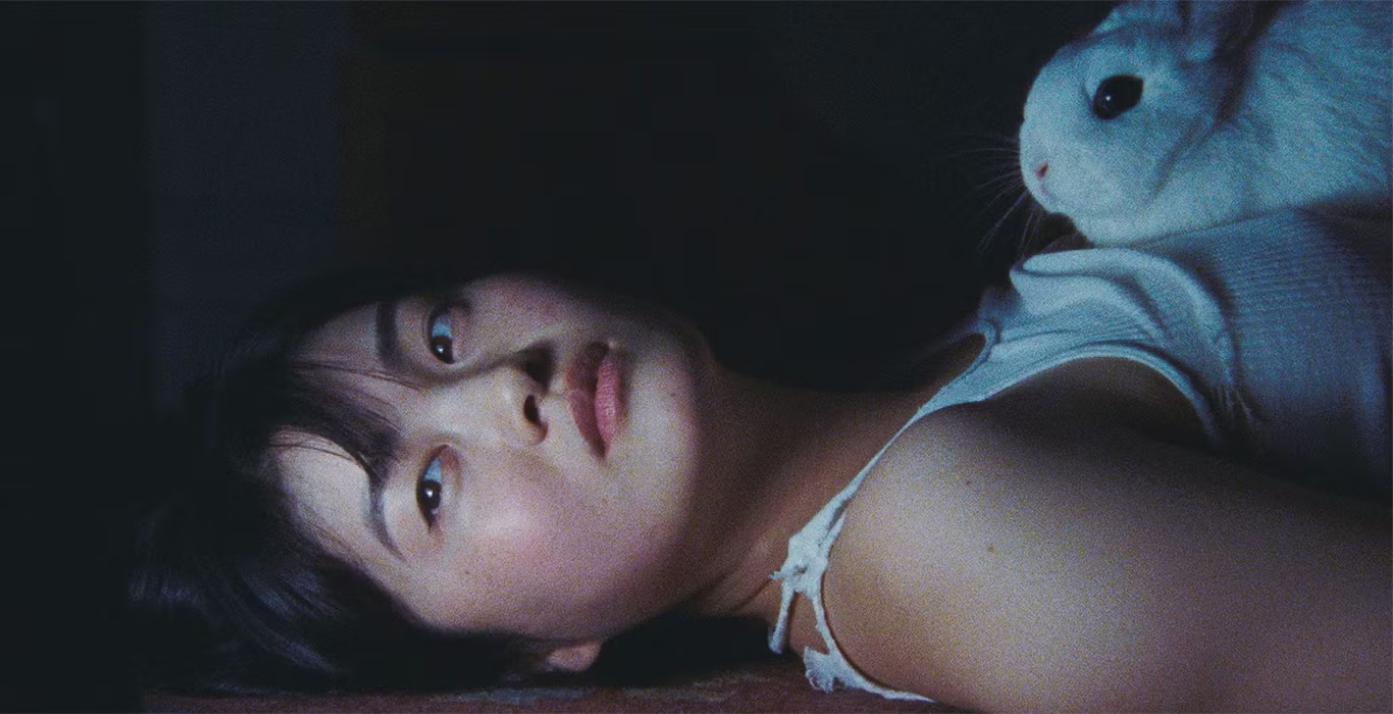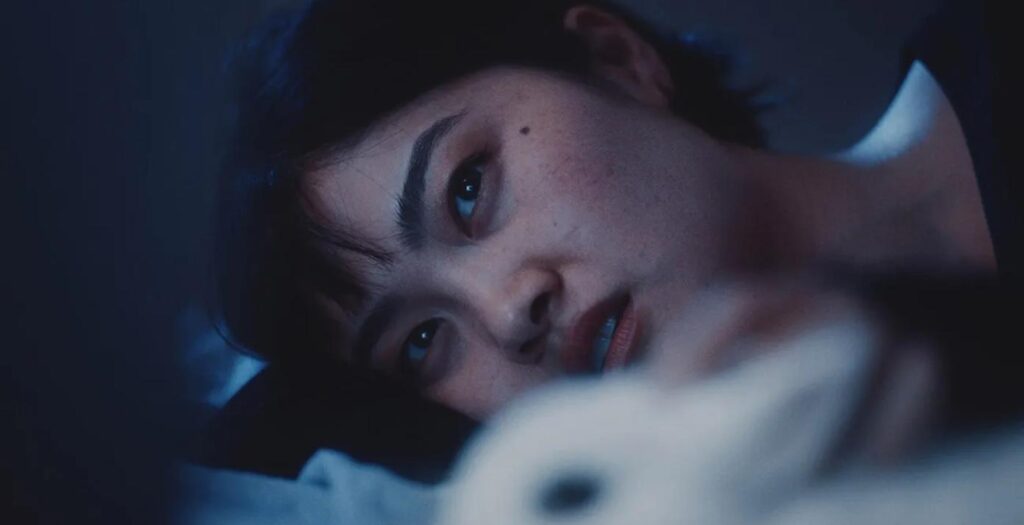In Bunnylovr (2025), the directorial debut from writer-director and star Katarina Zhu, physical intimacy and the illusion of it become a way to find some semblance of self for Rebecca, an aimless Chinese-American cam-girl. She uses the distance of a screen to connect to lonely men and has worked to ensure that her boundaries are set in stone.
But as Rebecca hits her self-destruct button, John (Austin Amelio), one of her viewers who isn’t interested in seeing Rebecca perform sexual acts but rather play with her bunny named Milk on screen, becomes increasingly toxic. As the online admirer pushes Rebecca further and further out of her comfort zone, she humors him. The viewer pushes Rebecca further over her boundary lines, but with a yearning for connection, she begins to comply until she finally decides to save herself.
While Bunnylovr can be uncomfortable to watch, it’s never abrasive or judgemental in how it approaches Rebecca or her job as a sex worker. Instead, Zhu paints a portrait of a woman trying to float through life while yearning for connection without wanting to allow the physical and mental vulnerability that comes with it. Rebecca is sad and lonely (even with all the attention she gets,) and ultimately, she’s looking for purpose.
When her estranged father, William (Perry Yung), reappears in her life, the chance to repair a broken relationship in her life arises, only to be cut short. He is dying. Their reconnection is bittersweet. Yes, she can find closure, but what can you do when the relationship you repair has an expiration date already?
As she learns to deal with the premature grief, Rebecca becomes increasingly self-destructive, allowing her boundaries to blur and eroding the emotional and physical safety that she’s worked so hard to cultivate. But as Rebecca’s aimless and flighty life begins to come more into focus, so do the limitations of the simple screenplay.
Bunnylovr pushes its audience to stand by Rebecca as she hits her self-destruct button.

Much of the film’s emotional development is left to be inferred. While the intimacy at hand is a commodified product, Rebecca doesn’t do much to establish pathways in her life that cultivate connection in healthy ways. Maybe that’s what happens after the credits roll. At the same time, closure feels almost necessary for the journey that we’re taken on. This ultimately culminates in an uncomfortable trip to the vet which makes Rebecca realize that she and Milk are separated by a fragile line that has blurred continuously.
Bunnies experience shock. Their ears get cold, their bodies start to become unresponsive, and in the worst cases, they can die. Rebecca and Milk are partners in this, two shocked creatures trying to find the ground and heal. But to do that, you have to find help.
When Rebecca finally talking to her loud, funny, and brash roommate, Bella (Rachel Sennott), the world starts to feel less lonely. It’s a small thing, but it’s an extension of friendship. Rebecca’s ability to isolate herself even when in the same apartment as someone stoked her pain. Until this point, it felt like any interaction with Bella was under duress, but now, Rebecca is trying to heal. A messy look at a messy life ultimately works; her smile and return to assumed normalcy play us out.
As a directorial feature debut for Zhu, her ability to bring Rebecca to life with tenderness is admirable. Unfortunately, there is a gap between what Zhu is trying to say in Bunnlovr and how effective it is in coming across in a complete way. The film lacks emotional weight and direct exploration of self-destruction that feels needed for what Rebecca has put herself through. Some of the threads fall by the wayside, and while Zhu has showcased her ability to make her audience uncomfortable, she hasn’t exactly invested the same time in building them back up.
For a first film, Bunnylovr is a strong showing of tenderness and understanding that, if anything, highlights Katarina Zhu’s ability to paint an immersive portrait of a character. Zhu can make her audience invested, but the payoff needs refining. That said, Bunnylovr has me eagerly seeing what Zhu does next.
Bunnylovr (2025) premiered at the 2025 Sundance Film Festival.
Bunnylovr
-
Rating - 6.5/106.5/10
TL;DR
Bunnylovr is a strong showing of tenderness and understanding that, if anything, highlights Katarina Zhu’s ability to paint an immersive portrait of a character. It happens once her audience is invested, which needs some refining.







